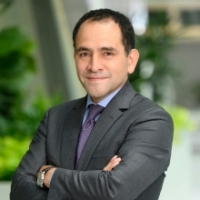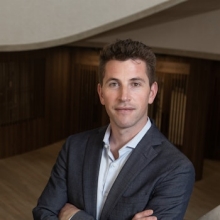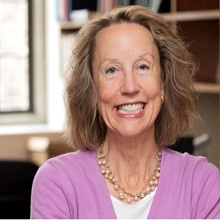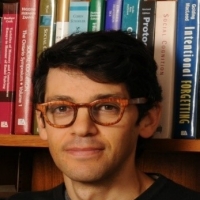The Governance Global Department Book Talks presents recent books by leading global experts. These books were written for a broad audience and cover public policy areas that are relevant for Governance and beyond.
- OVERVIEW
- SPEAKERS
- RELATED
Past Events
Harold James on Seven Crashes: The Economic Crises that Shaped Globalization | Thursday September 11th, 2025
On Thursday, September 11th, 2025, the Institutions Global Department Book Talks welcomed Harold James to discuss his book, Seven Crashes: The Economic Crises That Shaped Globalization. His book shows how the uneven course of globalization has led to new economic thinking, and how understanding this history can help us better prepare for the future.
Abhijit Banerjee Chhaunk on Food, Economics and Society| Friday May 30th, 2025
On Friday, May 30th, 2025, the Institutions Global Department Book Talks welcomed Abhijit Banerjee to discuss his book, Chhaunk on Food, Economics and Society - part memoir, part cookbook, Chhaunk playfully uses food to talk about economics, society and India, and makes unexpected connections, say, between savings and shami kebab or between women’s liberation and the Bengali vegetable dish of ghanto.
Thomas Hale on Long Problems: Climate Change and the Challenge of Governing across Time | Wednesday May 7th, 2025
On Wedensday, May 7th, 2025, the Institutions Global Department Book Talks welcomed Thomas Hale to discuss his book, Long Problems: Climate Change and the Challenge of Governing Across Time which describes tools and strategies that can, under certain conditions, allow policymakers to anticipate future needs and risks for citizens, make interventions that get ahead of problems, shift time horizons, adapt to changing circumstances, and set forward-looking goals that endure.
Dan Honig on Mission Driven Bureaucrats | Tuesday, November 19, 2024
On Tuesday, November 19th, 2024, the Governance Global Practice Book Talks welcomed Dan Honig to discuss his book, Mission Driven Bureaucrats which explores how public servants are often motivated by a commitment to fulfill their agency’s mission—whether it's educating children, improving healthcare, or ensuring efficient public services like transportation. Dan Honig is an associate professor of public policy at Georgetown University's McCourt School of Public Policy and University College London.
John A. List on The Voltage Effect, How to make good ideas great and great ideas scale | Tuesday, September 24, 2024
On September 24th, 2024, John A. List presented his book, The Voltage Effect, How to make good ideas great and great ideas scale. The book argues that for an idea to have a widespread impact, it must achieve 'high voltage'—the ability to be replicated at scale. The book describes how scale isn't just about accumulating more users or capturing more market share. It's about whether an idea that takes hold in a small group can do the same in a much larger one.
Professor Anat Admati on The Bankers’ New Clothes | Tuesday, June 18, 2024
On June 18th, 2024, Professor Anat Admati presented her book, The Bankers’ New Clothes: What’s Wrong with Banking and What to Do about It. The book uncovers just how little things have changed—and why banks are still so dangerous. Anat Admati and Martin Hellwig debunk the false and misleading claims of bankers, regulators, politicians, academics, and others who oppose effective reform, and they explain how the banking system can be made safer and healthier.
Professor Anne Case on Deaths of Despair and the Future of Capitalism | Thursday, May 23, 2024
World Bank Governance Global Practice Book Talks welcomed Professor Anne Case who presented her book, Deaths of Despair and the Future of Capitalism, a book that explores the alarming decline of life expectancy in the United States. Her book uncovers the staggering rise of deaths from suicide, drug overdose, and alcoholism, and reveals the profound social and economic factors behind this crisis.
Sir Angus Deaton on Economics in America | February 21, 2024
World Bank Governance Global Practice Book Talks welcomed Professor Sir Angus Deaton who presented his book, Economics in America: An Immigrant Economist Explores the Land of Inequality, explaining how the field of economics addresses the most pressing issues of our time—from poverty, retirement, and the minimum wage to the ravages of the nation’s uniquely disastrous health care system—and narrates Deaton’s account of his experiences as a naturalized US citizen and academic economist.
Ray Fisman on Risky Business | January 9, 2024
World Bank Governance Global Practice Book Talks welcomed Raymond Fisman who presented his book Risky Business: Why Insurance Markets Fail And What To Do About It, exploring issues such as why insurers want to know so much about us and whether we should let them obtain this information.
Sebastian Edwards on The Chile Project | November 9, 2023
World Bank Governance Global Practice Book Talks welcomed Sebastian Edwards and his presentation on his book The Chile Project: The Story of the Chicago Boys and the Downfall of Neoliberalism, on how the neoliberal economic model—installed in Chile during the Pinochet dictatorship and deepened during three decades of left-of-center governments—came to an end in 2021.
Joel Slemrod on Rebellion, Rascals, and Revenue | October 25, 2023
World Bank Governance Global Practice Book Talks welcomed Joel Slemrod who presented the findings from his book "Rebellion, Rascals, and Revenue: Tax Follies and Wisdom through the Ages", an engaging and enlightening account of taxation told through lively, dramatic, and sometimes ludicrous stories drawn from around the world and across the ages.
Oscar Calvo-Gonzalez on Unexpected Prosperity | April 25, 2023
World Bank Governance Global Practice Book Talks welcomed Oscar Calvo-Gonzalez who presented the main findings from his book "Unexpected Prosperity”. In this book Oscar investigates how Spain escaped the middle income trap, addresses key questions related to the political economy of reform and provides a case study.This is an in-person event. Coffee, tea, and cookies will be served.
Cass Sunstein on How Change Happens | March 23, 2023
World Bank Governance Global Practice Book Talks welcomed Cass Sunstein who presented the main findings from his book “How Change Happens”. Integrating insights on topics such as social norms, group polarization, and pluralistic ignorance with his intimate knowledge of law and public policy, Sunstein provides a road map of how change can and does happen. How Change Happens is a must-read for those who want to understand, and help to instigate, social change.
Chiara Cordelli on The Privatized State | February 28, 2023
World Bank Governance Global Practice Book Talks welcomed Chiara Cordelli who presented the main findings from her recent book, "The Privatized State". The book shows how privatization of core government functions undermines the very reason political institutions exist in the first place, and advocates for a new way of administering public affairs that is more democratic and just.
Alan Blinder on Reducing the Gap between Policies and Politics | January 26, 2023
World Bank Governance Global Practice Book Talks welcomed Professor Alan Blinder who presented the main findings from two recent books ("Advice and Dissent" and "A Monetary and Fiscal History of the United States"). His findings are particularly relevant in the context of expected recession in 2023 in several countries, continued inflation in others and restricted fiscal space in most. This challenging scenario demands hard policy choices from politicians, ranging from subsidies cuts to tax and pension reforms and massive expenditure reductions. Blinder offers us a view of how to arrive at sound policies needed to tackle increasingly complex challenges by narrowing the gap between what politicians want, and what experts recommend.
World Bank Governance Global Practice
John A. List on The Voltage Effect, How to make good ideas great and great ideas scale
Professor Anne Case on Deaths of Despair and the Future of Capitalism
Professor Anat Admati on The Bankers’ New Clothes
Sir Angus Deaton on Economics in America
Sebastian Edwards on The Chile Project
Joel Slemrod on Rebellion, Rascals, and Revenue
Oscar Calvo-Gonzalez on Unexpected Prosperity
Cass Sunstein on How Change Happens
Chiara Cordelli on The Privatized State
Alan Blinder on Reducing the Gap between Policies and Politics
Date: January 26, 2023 - June 30, 2025 ET
Location: World Bank Main Complex











